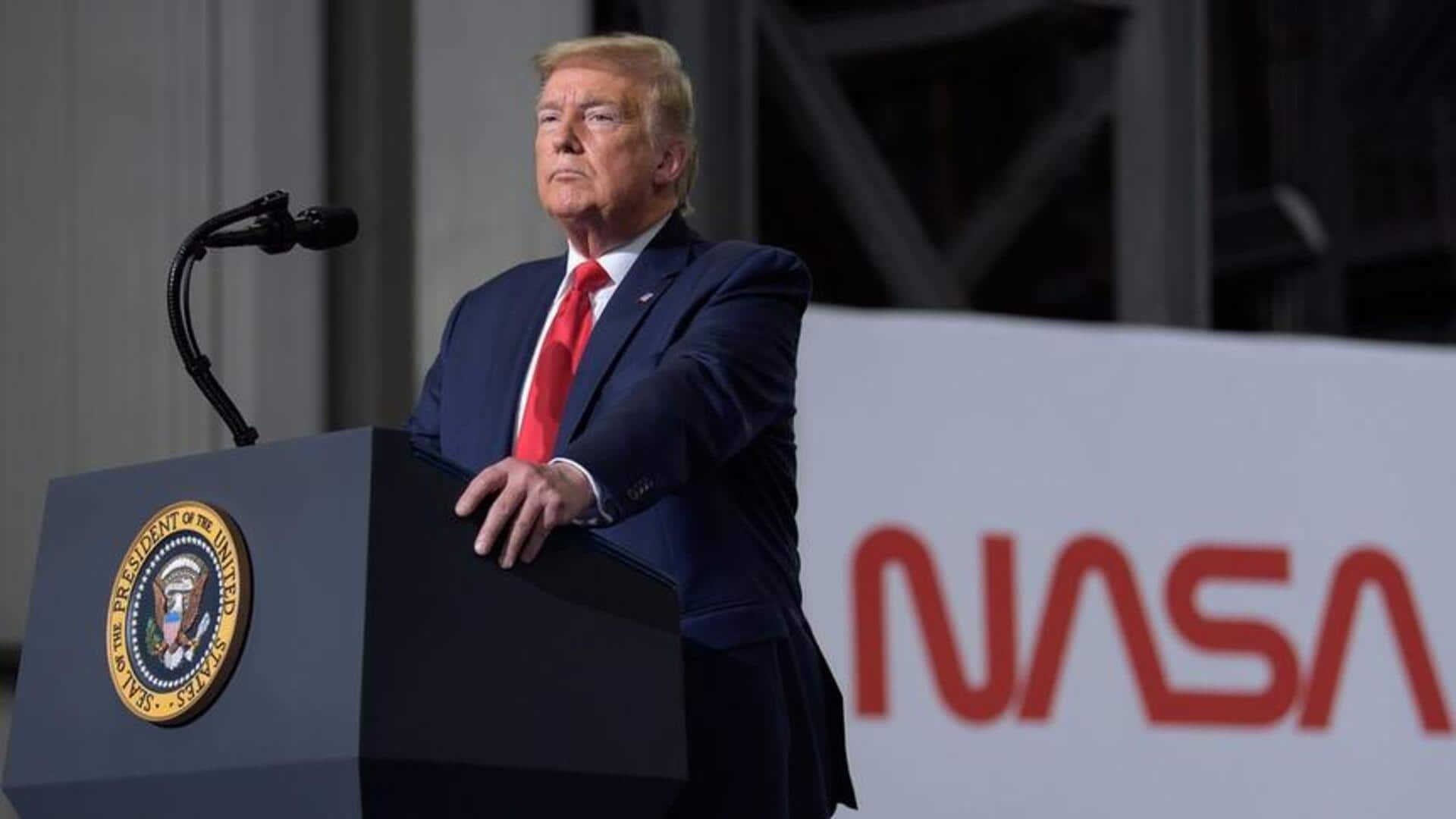
Trump to axe NASA missions tracking carbon dioxide, crop health
What's the story
The Trump administration is planning to end two crucial NASA missions that monitor carbon dioxide emissions and plant health. The missions, which include a satellite and an instrument on the International Space Station (ISS), provide unique data on greenhouse gas emissions and crop growth. However, President Donald Trump's budget request for fiscal year 2026 does not include any funding for these critical projects.
Mission status
NASA defends decision
NASA has defended its decision to end the missions, saying they are "beyond their prime mission" and are being terminated "to align with the President's agenda and budget priorities." The two missions in question are a free-flying satellite launched in 2014 and an instrument attached to the ISS in 2019. Both have technology used in the Hubble Space Telescope, making them more sensitive and accurate than any other systems currently operational or planned globally.
Scientific impact
Missions' impact on scientific understanding
The NASA missions have been instrumental in several scientific discoveries. They revealed that the Amazon rainforest emits more carbon dioxide than it absorbs, while boreal forests in Canada and Russia absorb more than they emit. The satellites can also detect the "glow" of photosynthesis in plants, which helps monitor droughts and predict food shortages that could lead to civil unrest or famine.
Expert opinion
Criticism from scientists
Jonathan Overpeck, a climate scientist at the University of Michigan, has criticized the decision as "extremely shortsighted." He stressed that the observations provided by these satellites are critical for managing growing climate change impacts around the planet. David Crisp, a retired NASA scientist who led their development, also called them a "national asset" that should be saved.
Legislative action
Hopes for congressional intervention
Crisp and others are hopeful that Congress will vote to preserve funding for the missions, which is currently funded through the fiscal year ending on September 30. A bill in the House closely aligns with Trump's request and would eliminate these missions, while a Senate version preserves them. However, with Congress in recess, it remains uncertain whether a budget will be adopted before the new fiscal year begins on October 1.
Funding fears
Legal and ethical concerns
There are concerns that the Trump administration could try to delay or withhold funds already appropriated by Congress. Last month, Congressional Democrats warned acting NASA Administrator Sean Duffy that it would be illegal to terminate missions or impound such funds. Experts have also noted that this move aligns with other efforts by the administration to cut or bury climate science research.